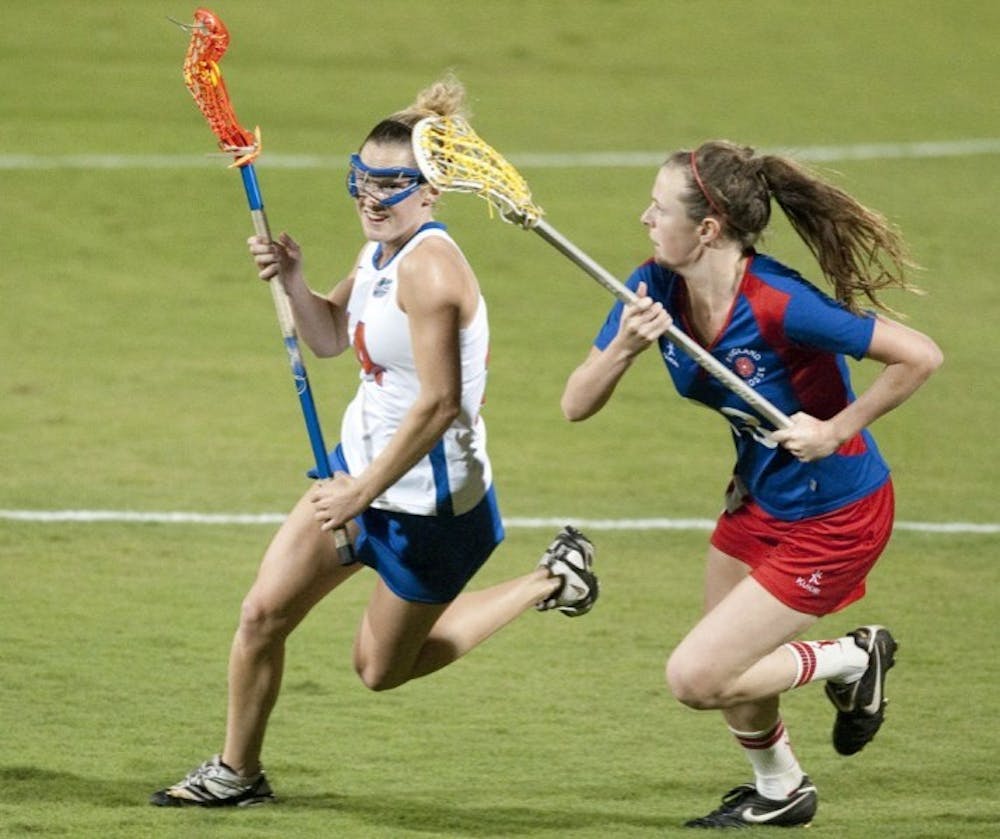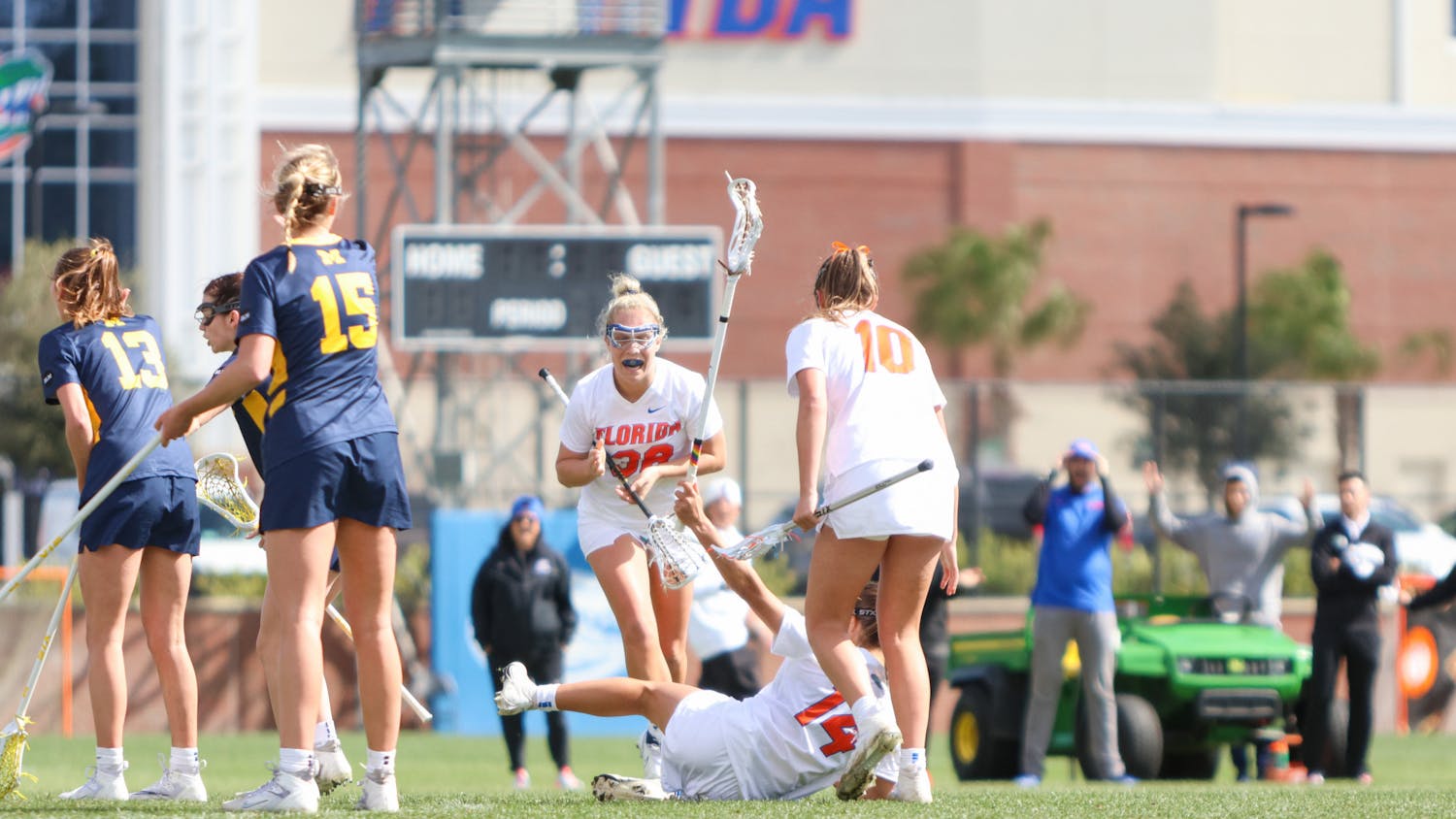A reckless hack with the stick is now carrying greater consequences than ever before.
The Gators, along with every other women’s lacrosse program, are facing the challenge of learning a new style of play due to an offseason rules change that requires any player who receives a yellow card to leave the game for two minutes without being replaced.
“It’s a work in progress,” Gators coach Amanda O’Leary said. “This is game-changing.”
The new rule forces the team playing down a player to do so in the third of the field the ball is in, whereas under the previous rule the team could still keep seven players in the active third of the field while having just three players outside of that third.
O’Leary, who serves on the NCAA Rules Committee, said the rule was modified to put more “bite” into yellow cards.
“They wanted yellow cards to mean something and that there were going to be ramifications and repercussions to people getting yellow cards,” O’Leary said.
For the offense, O’Leary said the biggest challenge when playing a player down is to keep the ball moving, while the biggest challenge on defense is to not get worn out during the course of the two-minute penalty.
O’Leary stressed that the most important thing a team can do while playing a player up is to constantly be looking for the open attacker.
Florida was able to take advantage of a one-woman advantage twice in its 17-2 exhibition win against England on Jan. 26.
One of the goals came when England’s Emily Gray got a yellow card at the 14:35 mark for hitting freshman midfielder Nicole Graziano in the head. Less than two minutes later, Kitty Cullen found freshman midfielder Nora Barry unguarded right outside the center of the crease, where Barry put it past the goalkeeper for her second score of the game.
“It was definitely because we were a man up that that goal happened,” Barry said. “Kitty knew that I was the open player and she knew where I was right when she got the ball. It was definitely a result of our coaches preparing us for that situation and my teammates being prepared.”
By penalizing teams that commit hard fouls, the changes to the rule will decrease injury risk in a sport where players do not wear helmets, yet sticks are swung wildly and used as a means of checking.
“It will hopefully decrease the amount of concussions coming out of lacrosse,” Graziano said.
Cullen believes that players will be more cautious when defending for fear of putting their team in a shorthanded situation.
“Before, people would just check you as hard as they could because there was no disadvantage,” Cullen said. “But now, I think people will be a lot more cautious and everyone will be a lot safer.”
Florida freshman midfielder Nora Barry (left) scored a goal in an exhibition game against England on Jan. 26 shortly after English defender Emily Gray picked up a yellow card.






